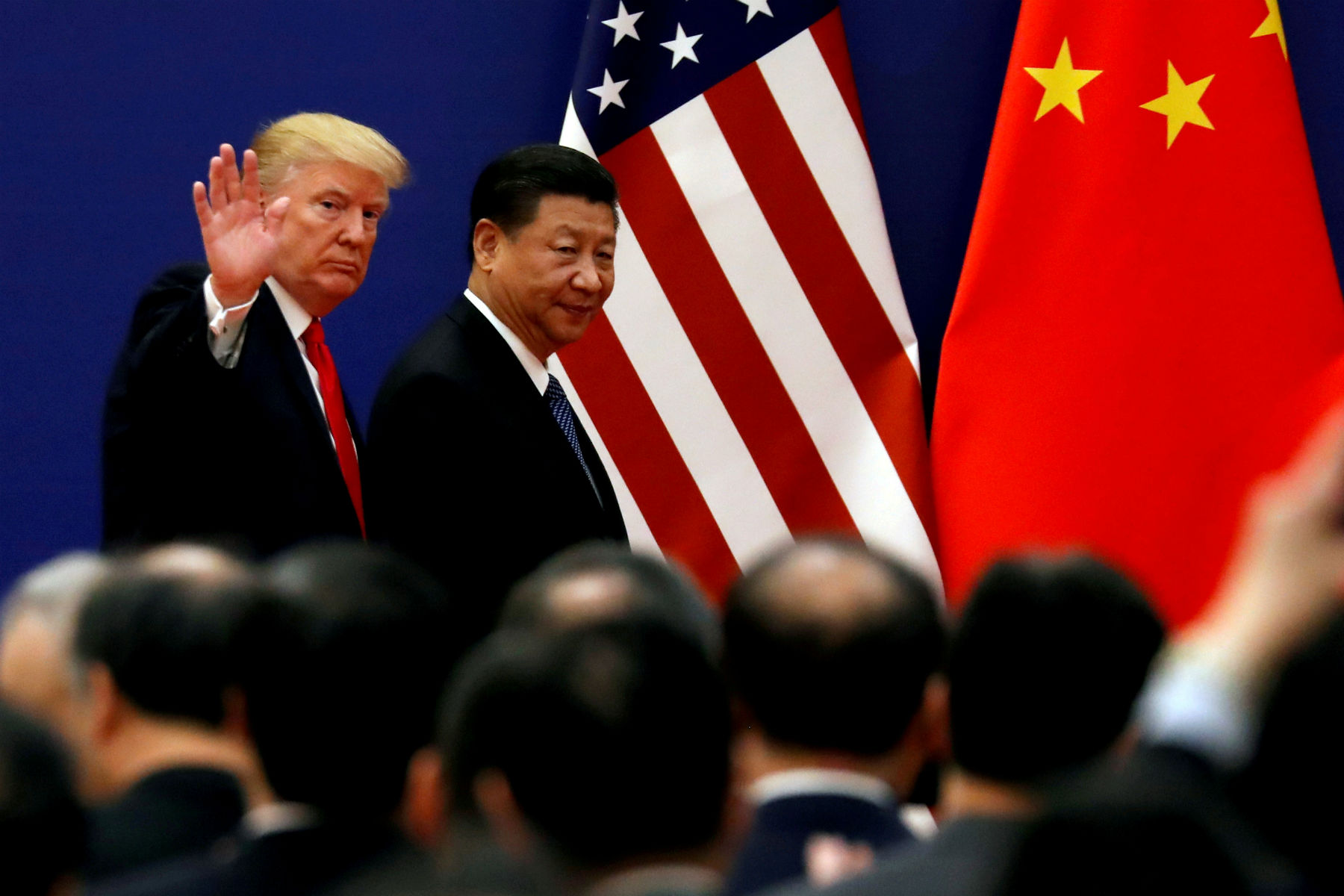As President Trump doubles down on tariffs and hardline trade policies with China, foreign policy expert Gordon Chang joined Chicago’s Morning Answer to explain why these moves may be landing at a particularly vulnerable moment for Chinese President Xi Jinping—and why the United States must be prepared for short-term economic pain in pursuit of long-term national security and stability.
Chang, author of Plan Red: China’s Project to Destroy America and The Great U.S.-China Tech War, laid out a compelling case: Xi’s economy is faltering, his political standing is increasingly fragile, and the pressure from international partners turning away from China is mounting.
China’s Economy in Decline
“The Chinese economy is not growing at the rate they claim—it may even be contracting,” said Chang, pointing to factory closures, grim export forecasts, and signs of deflation. While China officially reported 5.4% GDP growth in Q1, Chang believes the real numbers are significantly lower.
Compounding the problem, China’s massive $295 billion trade surplus with the U.S. offers limited leverage in a trade war. As a trade surplus nation, China has fewer economic weapons to deploy without harming itself.
“If Xi doesn’t make a deal, he could lose his economy. If he does make a deal with Trump, he could lose his position,” Chang explained, describing the bind China’s leader finds himself in.
International Isolation Grows
Recent developments underscore China’s increasing isolation on the global stage. Vietnam and India have both imposed tariffs on Chinese steel, aiming to protect their markets from cheap, excess Chinese goods that would otherwise flood their economies as U.S. tariffs kick in.
Notably, even after Xi’s recent state visit to Vietnam, a senior Vietnamese official publicly reaffirmed that U.S. cooperation remains of “core importance”—a diplomatic snub that suggests Beijing’s regional influence is slipping.
Countries around the world “are tired of being abused by China’s predatory trade practices,” Chang said. “And the world is redirecting away from China and toward the United States.”
Trump’s Strategy: Smart But Risky
While Chang supports President Trump’s overall approach, he did express some reservations about the administration’s tactics, particularly when it comes to consistency and clarity. However, he fully supports the goal: isolate China diplomatically and economically, and force structural reforms in trade policy.
“This is the right strategy,” said Chang. “We’ve had three decades of injurious China trade policy. Some pain is inevitable if we’re going to undo the damage.”
Despite the risks, Chang is optimistic that the United States can rally a new global trade order that excludes China. More than 30 countries are already engaged in trade negotiations with the Trump administration, he noted.
No Easy Options for Xi
Xi’s options are limited—and dangerous. Chang warned that if Xi finds himself cornered, he could resort to military aggression, not just to distract the Chinese people but to consolidate his own power within the Communist Party. A strike on Taiwan or further support for Russia in Ukraine are both within the realm of possibility.
“This wouldn’t be to rally the people—they don’t want war—but to protect his own position within the party,” Chang said. “We’ve seen this before. Mao Zedong did it during the Cultural Revolution.”
Beijing is already showing signs of increased hostility. According to Chang, Chinese military officers are operating in Ukraine under the guise of “observers,” a potentially dangerous development.
U.S. Must Get Serious
Chang ended the interview with a stark warning: Americans must unify around the threat China poses—economically, technologically, and militarily.
“Politics must stop at the water’s edge,” he said. “If we don’t band together, we could lose our country. We’re not taking this seriously enough.”
Whether it’s tariffs, pharmaceutical independence, or a broader geopolitical strategy, Chang emphasized that the United States must act with urgency and resolve.
“China needs to sell, but we don’t need to buy. That’s our strength,” he concluded.
Gordon Chang can be followed on X (formerly Twitter) at @GordonGChang.





